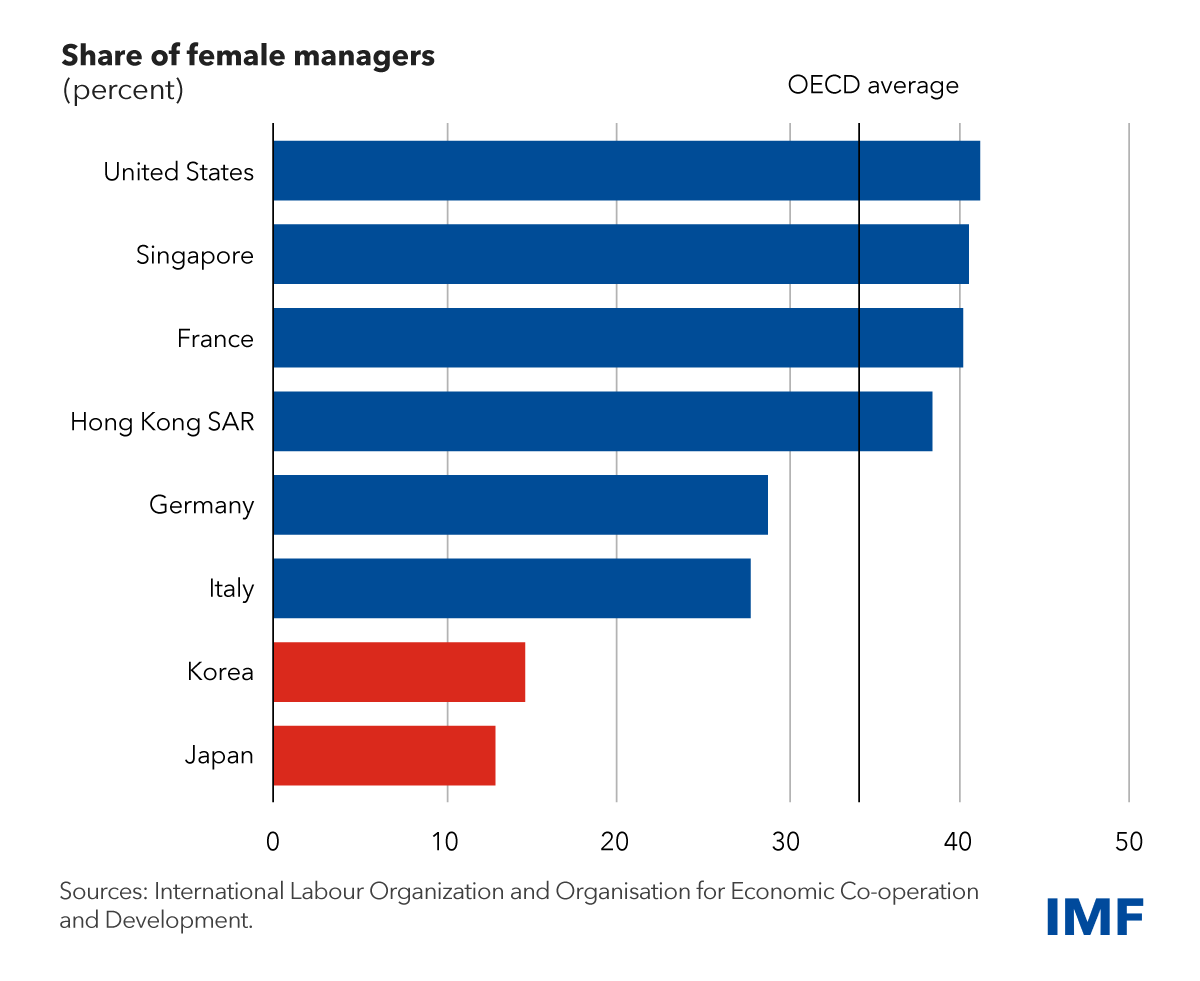Repronews #32: Genetic testing can predict higher risk of heart attacks
Utility of polygenic risk scores; Dobbs' impact on ART; recent trends in ART practice; IMF on boosting Japanese & Korean birthrates; race & brain diseases; organic GMOs

Welcome to the latest issue of Repronews! Highlights from this week’s edition:
Repro/genetics
Polygenic risk scores will be increasingly useful for personalized healthcare and predictive analyses
The Supreme Court’s Dobbs decision on abortion may open way to more restrictive regulations on assisted reproduction
Between 2014 and 2020, assisted reproductive in the U.S. has seen a 155.7% rise if genetic testing for aneuploidy and a drop in multiple gestations and miscarriages
Population Policies & Trends
IMF suggests expanding childcare and gender equality could boost birth rates in Japan and South Korea
Genetic Studies
Genetics influences risk of heart attacks during presidential elections and other stressful periods
Genetic ancestry influences Black Americans’ risk of brain diseases (ischemic stroke, Parkison’s, Alzheimer’s).
Further Learning
Can genetically modified crops be organic?
Repro/genetics
“Genetic and polygenic risk scores—advances and limitations and overview of associated tools” (Briefings in Bioinformatics)
The article provides an overview of the history and workings of genetic and polygenic risk scores (GRS/PRS), which estimate the risk of developing disorders based on genetic factors.
The authors argue that GRS/PRS have immense potential in support of precision genetics, personalized healthcare, and predictive analyses.
Significant progress in data collection, genomics and computational methodologies will enable incorporation of even more genetic variants into GRS and PRS calculations. Refined models will offer improved accuracy and enhanced predictive power, enhancing risk assessment for a wide array of complex traits and diseases. Continuous research could deepen our understanding of the intricate interplay between genetics and environmental factors.
A primary focus in the future will be the integration of GRS and PRS into clinical practice, allowing healthcare providers to tailor treatment plans based on each patient’s unique genetic risk profile.
While PRS tools are still in their early stages of development, they hold the potential to revolutionize disease screening and early detection.
“The impact of Dobbs on emerging reproductive technologies” (PET)
The ELSI Hub held a webinar on the impact of the U.S. Supreme Court’s Dobbs ruling on emerging reproductive technologies.
IVF and preimplantation genetic testing (PGT) have historically escaped prohibitive regulation. However, the recent Alabama Supreme Court’s decision to equate embryos created through IVF with living children has introduced a new level of uncertainty.
While the Dobbs decision does not explicitly discuss reproductive technologies, this ruling is likely to impact assisted reproduction.
Law professor of law Judith Daar, who serves as dean of the Salmon P. Chase College of Law in Kentucky, predicted a new wave of restrictions on assisted reproduction with “the next frontier in reproductive regulation.”
“Gestational carrier cycles: embryology trends, national guideline compliance, and resultant perinatal outcomes in the United States, 2014–2020” (American Journal of Obstetrics and Gynecology)
Practice patterns in assisted reproduction changed significantly between 2014 and 2020, with a 155.7% increase in preimplantation genetic testing for aneuploidy (an abnormal number of chromosomes) and a 79.2% reduction in multiple embryo transfer.
The latter was associated with a decreases in multiple gestations and miscarriages, and a slight increase in the live birth rate.
More on repro/genetics:
“The use of preimplantation genetic testing for aneuploidy: a committee opinion” (Practice Committee of the ASRM and SART)
“Enhancing clinical utility: deep learning-based embryo scoring model for non-invasive aneuploidy prediction” (Reproductive Biology and Endocrinology)
Lab-grown sperm and eggs: ‘epigenetic’ reset in human cells paves the way (Nature)
“How genetic testing lights the path in India’s fight against rare diseases” (Times of India)
Population Policies & Trends
“Empowering women could boost fertility, economic growth in Japan and Korea” (IMF)
Analysts at the International Monetary Fund (IMF) argue that creating a supportive environment for women through family-friendly policies, flexible labor markets, and progressive social norms will yield economic and demographic gains in Japan and South Korea.
At 0.72 and 1.26, respectively, the fertility rates in Korea and Japan are among the lowest in the world.
South Korea and Japan are marked by conservative gender norms that reduce female workplace participation. Representation of women in senior management roles is less than 15% in the two countries, among the lowest in G20 countries. South-Korean and Japanese women perform around five times more unpaid housework and caregiving than do men.
Working arrangements in these countries are often not family-friendly. Long working hours, inflexible schedules, and limited use of telework make balancing career and childcare responsibilities extremely challenging for women.
Japan and South Korea have acted to support women, including through enhanced childcare and maternity leave policies, but more efforts are needed from these governments, business communities, and society at large.
The IMF analysts suggest expanding childcare facilities and facilitating fathers’ contributions to home and childcare, including establishing stronger incentive mechanisms for paternity leave use.
Japan’s fertility rate mostly stabilized after the country expanded childcare facilities over a decade ago, and recent IMF studies on Japans suggest increasing such facilities further would have a positive impact both on fertility and women’s career advancement.
Facilitating a cultural shift in the workplace by expanding the use of telework and flexible working-time arrangements could support increased women labor participation, while also allowing men to share more responsibilities at home.
Genetic Studies
Genetics influences risk of heart attacks during presidential elections and other stressful periods (Fox News)
Your genes can put you at a higher risk of heart attack during very stressful times, according to new research from Massachusetts General Hospital.
People who have specific genetic traits, paired with anxiety or depression, are at a “significantly higher heart attack risk” during periods of social or political stress, such as presidential elections, winter holidays, or even the Super Bowl.
The study was the first to examine stress sensitivity based on genetics as a driver of acute coronary syndromes (ACS). These syndromes include heart attacks and other “serious conditions where the heart is suddenly deprived of blood supply.”
The researchers estimated the participants’ stress sensitivity by measuring their neuroticism polygenic risk score (nPRS). People with above median nPRS, or high genetic stress sensitivity, had a 36% higher risk of ACS.
The impact of genetic susceptibility on heart attack risk could be an important factor for cardiologists and general care physicians to consider.
“Based on that identification, we could develop targeted intervention, or maybe preventive strategies, that could help us protect those people from developing heart attacks in the future,” said lead study author Shady Abohashem, instructor of cardiovascular imaging at Massachusetts General Hospital and Harvard Medical School.
The researchers are currently working on a study to discover how lifestyle modifications can benefit people with a high genetic risk for stress.
Dr. Laxmi Mehta, an American Heart Association medical expert and cardiology director at Ohio State University, said: “The mind-heart connection is strong, and this study highlights that not only our bodies, but also our minds, need rest and care. The public needs to be aware of the impact social and political stress has on us, that it is OK to take a break from these stressors, and also that it is good to learn more about interventions like yoga, exercise and mindfulness.”
“Analysis of gene expression in the postmortem brain of neurotypical Black Americans reveals contributions of genetic ancestry” (Nature Neuroscience)
Ancestral differences in genomic variation affect the regulation of gene expression. This study examined the impact of genetic ancestry on gene expression and DNA methylation in the postmortem brain tissue of admixed Black American neurotypical individuals to identify ancestry-dependent and ancestry-independent contributions.
Ancestry-associated differentially expressed genes (DEGs), transcripts, and gene networks are enriched for genes related to the immune response and vascular tissue and explain up to 26% of heritability for ischemic stroke, 27% of heritability for Parkinson’s disease, and 30% of heritability for Alzheimer’s disease.
More on genetic studies:
Find My Understudied Genes and Unknome: “Software tools identify forgotten genes” (Nature)
“Genome-wide association study of treatment-resistant depression: Shared biology with metabolic traits” (American Journal of Psychiatry)
“Genome-scale analysis of interactions between genetic perturbations and natural variation” (Nature Communications)
X chromosome revival in older women increases autoimmune disease risk (The Hindu)
“Indirect genetic effects increase the heritable variation available to selection and are largest for behaviours: a meta-analysis” (bioRxiv)
“Genes and heritability in intergenerational transmission” (Research Handbook on Intergenerational Inequality)
Further Learning
“Organically-grown genetically modified crops? Scientists unveil plan to bridge the ideological gap” (GLP/Journal of Biotechnology)
Current regulations do not permit genetically modified (GM) food to be labeled organic. However, genetic modification can enable plants to be less reliant on chemical pesticides and fertilizers.
The authors argue for the development and use of “biofortified and multiple stress tolerant GM crops” without the use of synthetic agrochemicals.
New gene edited (GE) crops should be developed that are “bio-fertilizer response” and/or “trait-reversible.”
More on human nature, evolution, and biotech:
“A fundamental stage of human reproduction is shifting: Can humans ever break free of menopause?” (The Atlantic)
“Why do people make music? Researchers found universal features of songs across many cultures, suggesting music evolved in our distant ancestors” (New York Times)
“The second law of behavior genetics” (Steve Stewart-Williams)
“Why are differences between men and women being denied?” (Modern Wisdom podcast interviews Steve Stewart-Williams)
“Bizarre bacteria defy textbooks by writing new genes: Bacterial defensive systems scramble the standard workflow of life” (Nature)
“Will coffee plants survive climate change? Genomes reveal clues from the past” (DNA Science)
“Neanderthal–human baby-making was recent — and brief” (Nature)
Disclaimer: The Genetic Choice Project cannot fact-check the linked-to stories and studies, nor do the views expressed necessarily reflect our own.

![Illustration of the basic concepts of PRS. Individuals of a populations are each characterized by their inherited genotypes and their associated phenotypes. GWAS aims to identify genetic variants that are causaly related with a phenotype of interest. However, it is generally observed that common variants (high minor allele frequency) are associated with only minor phenotypic effects, as large effect genotypic differences are generally selected against, as they are frequently detrimental. Thus, when profiling a general population, large-effect-SNPs are rare. This, and the polygenic origin of many diseases and conditions, necessitates the combination of many markers (SNPs) to arrived at an aggregated risk score, the PRS. This figure is in part adapted from [15, 16]. Illustration of the basic concepts of PRS. Individuals of a populations are each characterized by their inherited genotypes and their associated phenotypes. GWAS aims to identify genetic variants that are causaly related with a phenotype of interest. However, it is generally observed that common variants (high minor allele frequency) are associated with only minor phenotypic effects, as large effect genotypic differences are generally selected against, as they are frequently detrimental. Thus, when profiling a general population, large-effect-SNPs are rare. This, and the polygenic origin of many diseases and conditions, necessitates the combination of many markers (SNPs) to arrived at an aggregated risk score, the PRS. This figure is in part adapted from [15, 16].](https://substackcdn.com/image/fetch/$s_!Y96s!,w_1456,c_limit,f_auto,q_auto:good,fl_progressive:steep/https%3A%2F%2Fsubstack-post-media.s3.amazonaws.com%2Fpublic%2Fimages%2F5dcb4bdb-39e5-4332-bf4b-f73f8e60f74d_1136x611.jpeg)

